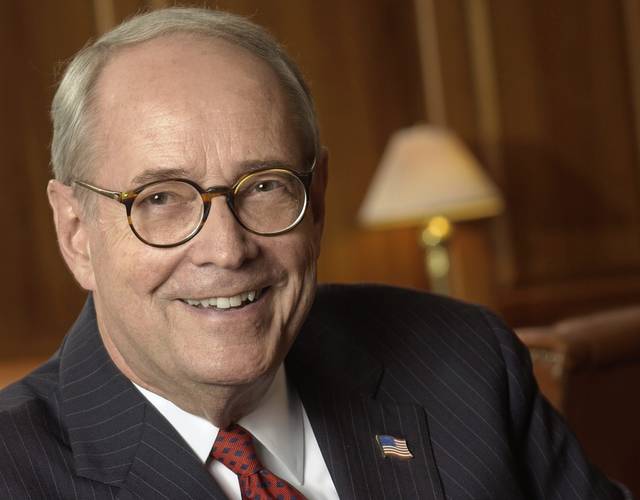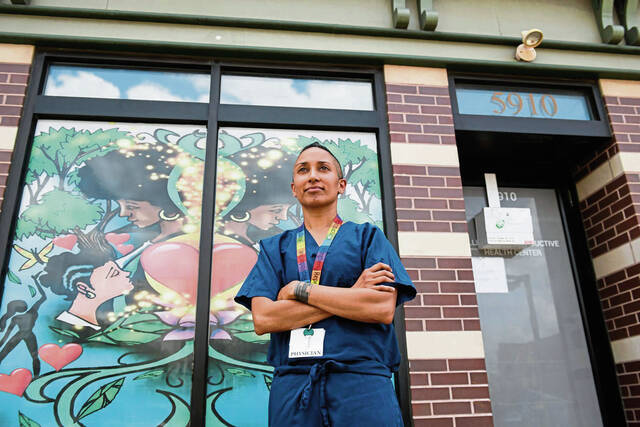When I first met Dick Thornburgh in 1971, I was one of a small group of graduate students at Carnegie Mellon. We were working under a federal grant to develop a computer model for more effectively allocating law enforcement funds for Allegheny County.
In our 20s, idealists about government, none of us were fans of the conservative Nixon administration then in power. Thornburgh was a Republican recently appointed by Nixon as U.S. attorney for Western Pennsylvania. He was rumored to be politically ambitious. We weren’t sure what to expect when he walked into our classroom.
There for an official briefing, he began by asking everyone to introduce themselves. Then, he took off his coat, rolled up his sleeves, sat down and placed a yellow legal pad on the table.
“I’m here to learn from you guys,” he said.
Instantly, we felt at ease. For the next hour, he listened, asked questions and listened some more. When he left the room, we were ready to go to work for him, whatever his political future. Little did I imagine that seven years later, I would become head of policy for his first gubernatorial campaign. I’d spend eight more years with him as he restored state government, made it work better, and garnered recognition as one of the most effective and popular governors in the nation.
If the entire commonwealth of Pennsylvania was fortunate to have him, you could say Pittsburgh was one of its luckiest regions. As a lifelong Pittsburgher, a Pitt law school grad, devout Pirates fan and community leader, he always kept his hometown in mind when creating a legislative agenda.
Consider the record:
• From steel to tech. Launched in 1982, Thornburgh’s Ben Franklin Partnership brought the two Pittsburgh flagship universities, Pitt and Carnegie Mellon, together to fuel creation of technology jobs for the region. Innovation Works continues this work today.
• Transportation. The highways and the bridges that cross our rivers are the circulatory system for the region’s economy. Thornburgh made transportation his premier example of restoring integrity, sound management and funding to ensure the health of that system. He pushed through special measures for area bridges and public transportation.
• Robotics. Pittsburgh is frequently referred to as “Roboburgh.” Its international reputation was initiated when Thornburgh’s Three Mile Island clean-up plan included funding for CMU’s robotics team.
• Housing. As jobs disappeared in the early 1980s, home foreclosures climbed. Thornburgh got behind then-Speaker K. LeRoy Irvis’ idea for the Housing Emergency Mortgage Assistance Program. Even today, this program is easing housing foreclosures and evictions brought on by the pandemic.
• Welfare and unemployment compensation reform. Sweeping reforms initiated by the governor allowed more efficient and fairer use of federal and state dollars, helping the region survive and recover from the recession of 1982.
• Capital investment. To transition to the new economy of the mid-1980s, the region desperately needed a new airport, redevelopment of industrial sites into tech centers, research centers for CMU and Pitt, and what would become the Carnegie Science Center. In 1986, Thornburgh led creation of the Pennsylvania Redevelopment Capital Assistance Program to inject more than $1 billion into these and more recent projects, including two sports stadia and riverfront development amenities that have become the modern face of Pittsburgh.
In all these endeavors, the governor knew nothing was possible without at least 102 votes in the state House and 26 in the state Senate. His willingness to reach across the aisle, to work constructively with Democrats and Republicans, often produced overwhelming bipartisan support for legislation benefitting the region. The list of other outstanding political figures with whom he collaborated is long, with familiar names like Irvis, Manderino, Zemprelli, Cessar, Ryan, Hayes, Geist, Murphy, Foerster and Caligiuri.
These public leaders, partnering with Dick Thornburgh, changed the destiny of our region.
When he died on New Year’s Eve at the age of 88, the list of public officials offering stirring tributes was long and bipartisan. Bill Scranton, Thornburgh’s able lieutenant governor, said it best: “Governor Thornburgh was a consummate public servant — honest, competent and caring. I was proud to serve at his side. He loved politics but never let that stop him from doing the right thing. The nation could use more of his kind in elective office.”
I’ll wager there are many in Southwestern Pennsylvania who feel the same way.
Rick Stafford served from 1979-87 as secretary of legislative affairs and chief of staff to former Gov. Dick Thornburgh. He is a professor of public policy at Carnegie Mellon University and co-owner of Laurel Vista Farms in Somerset County.








